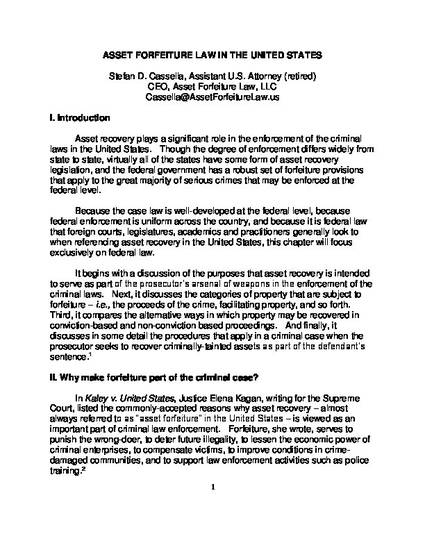
Contribution to Book
Asset Forfeiture Law in the United States
The Palgrave Handbook of Criminal and Terrorism Financing Law
(2018)
Abstract
Asset recovery plays a significant role in the enforcement of the criminal laws in the United States. Though the degree of enforcement differs widely from state to state, virtually all states have some form of asset recovery legislation, and the federal government has a robust set of forfeiture provisions that apply to the great majority of serious crimes that may be enforced at the federal level. This chapter will focus exclusively on federal law for three reasons: the case law is well-developed at the federal level; federal enforcement is uniform across the country; and it is federal law that foreign courts, legislatures, academics and practitioners generally look to when referencing asset recovery in the United States.
This chapter first discusses the purposes that asset recovery is intended to serve as part of the prosecutor’s arsenal of weapons in the enforcement of the criminal laws. Second, it discusses the categories of property that are subject to forfeiture – i.e., the proceeds of the crime, facilitating property, and so forth. Third, it compares the alternative ways in which property may be recovered in conviction-based and non-conviction based proceedings. Finally, the chapter discusses in some detail the procedures that apply in a criminal case when the prosecutor seeks to recover criminally-tainted assets as part of the defendant’s sentence.
Keywords
- asset forfeiture,
- non-conviction-based forfeiture,
- criminal forfeiture
Disciplines
- Law and
- Criminal Law
Publication Date
2018
Editor
Colin King, Clive Walker and Jimmy Gurule
Publisher
UK, Palgrave Macmillan
Citation Information
“Asset Forfeiture Law in the United States,” Chap. 18 in The Palgrave Handbook of Criminal and Terrorism Financing Law, Colin King, Clive Walker and Jimmy Gurule (eds.) (UK, Palgrave Macmillan 2018);
